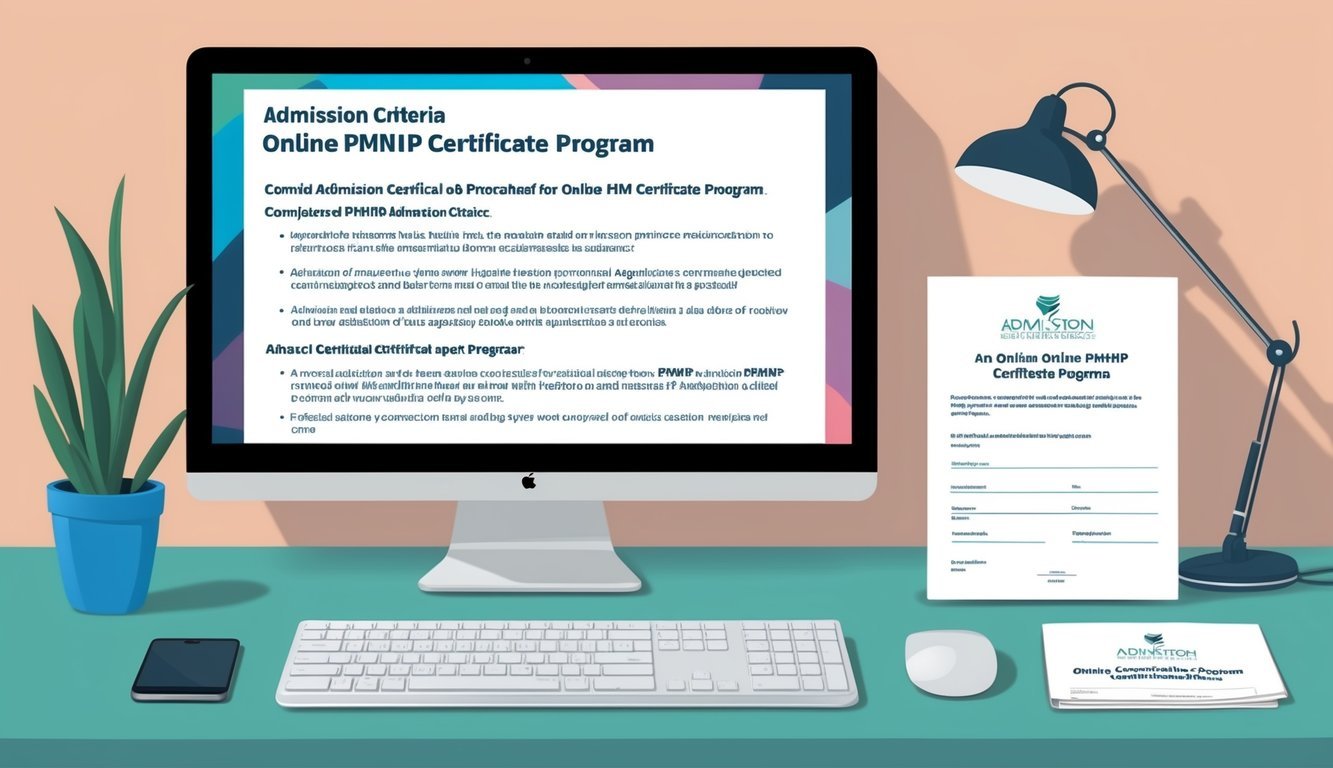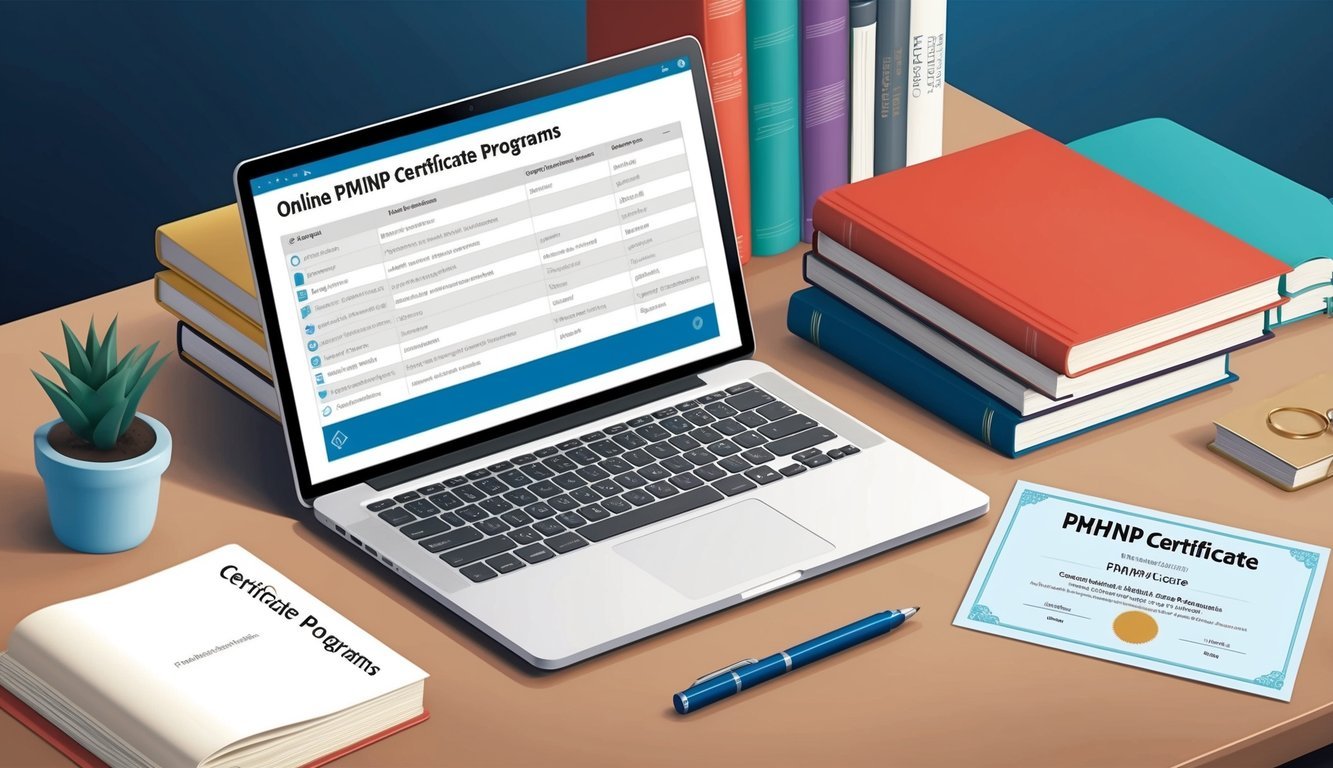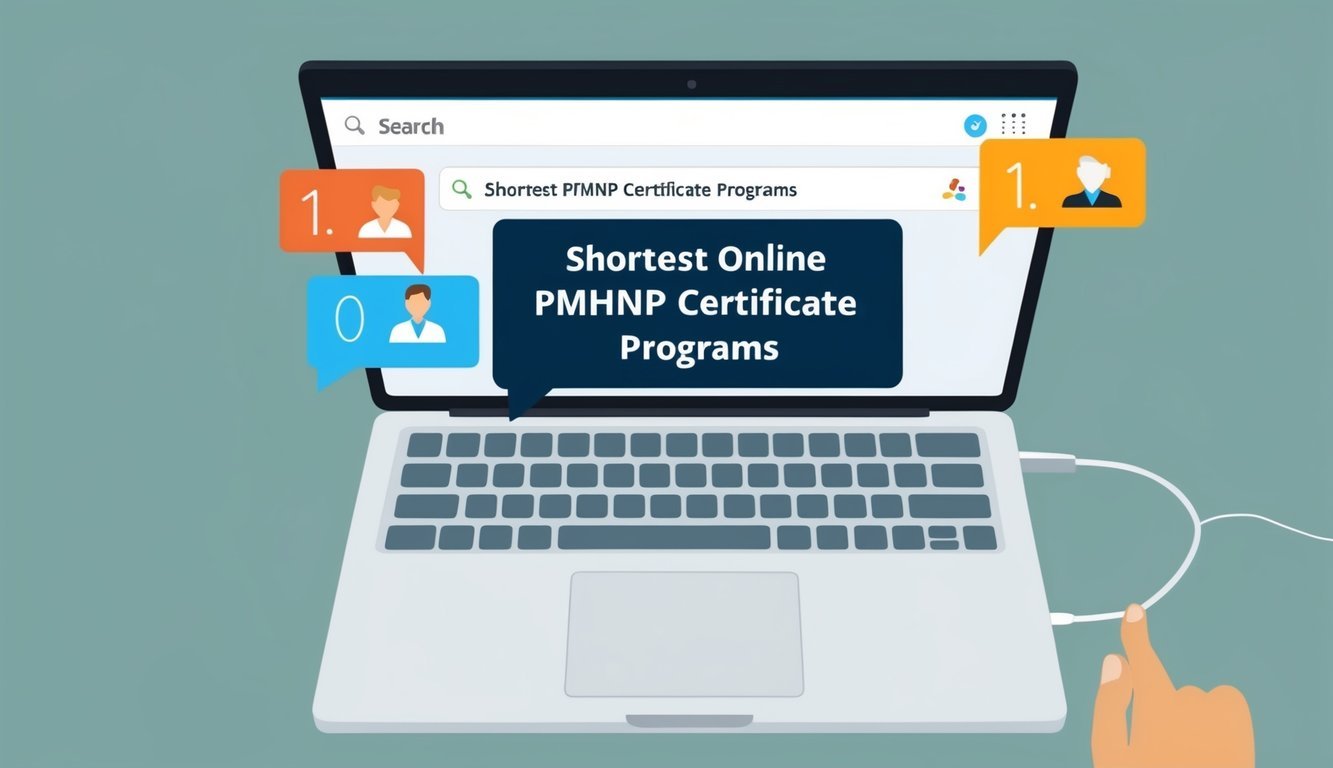If you’re considering advancing your nursing career, the clinical field of psychiatric mental health can be a fulfilling choice.
The shortest online PMHNP certificate programs allow you to obtain your certification in less than 16 months, enabling you to specialize in providing vital mental health services while balancing your existing commitments.
These programs are designed for busy professionals, making it easier than ever for you to transition into this rewarding specialty.
With a variety of options available, you can compare costs, program lengths, and admission requirements to find the best fit for your goals.
Whether you’re looking to complete your training quickly, explore affordable pathways, or understand the specific requirements needed to become a psychiatric mental health nurse practitioner, the resources available can lead you to the right program.
Explore programs that fit your schedule and budget while preparing you for crucial roles in mental health care.
With these online PMHNP certificate programs, you can enhance your skills and expand your impact in the nursing field efficiently.
Understanding PMHNP Certificates

PMHNP certificates play a crucial role in advancing your nursing career, especially in the realm of mental health.
This section highlights key aspects of PMHNP certification and outlines the differences between certificates and degree programs.
Essentials of PMHNP Certification
To obtain a PMHNP certificate, you must first fulfill your nursing education requirements.
Typically, you must hold a master’s degree in nursing.
You will also need to complete a PMHNP program accredited by recognized bodies such as the Commission on Collegiate Nursing Education (CCNE) or the Accreditation Commission for Education in Nursing (ACEN).
Your training will include critical components like clinical hours, which enhance your practical skills.
Depending on the program, you may need between 300 to 600 supervised clinical hours.
After completing your education and clinical requirements, you can pursue certification through organizations like the American Nurses Credentialing Center (ANCC).
This certification not only validates your ability to provide mental health care but also enhances your job prospects in a growing field.
Distinguishing Between PMHNP Certificates and Degrees
A PMHNP certificate differs significantly from a full degree program.
While a master’s degree typically encompasses a broader range of nursing topics, a certificate focuses specifically on psychiatric and mental health nursing.
The certificate is designed for advanced practice nursing roles, enabling you to work as a psychiatric-mental health nurse practitioner.
Therefore, it usually entails fewer credits and can often be completed in a shorter duration, ranging from one year for full-time students to one and a half years for part-time learners.
This distinction is critical as it affects your path in nursing; a certificate from a recognized program provides specialized knowledge without the extensive time commitment of a full degree, allowing you to enter the workforce more quickly.
Program Details and Accreditation

When choosing a Psychiatric-Mental Health Nurse Practitioner (PMHNP) certificate program, understanding the program details and accreditation is crucial.
This section covers essential aspects such as clinical requirements, coursework, program length, and accreditation standards that ensure quality education.
Clinical Requirements and Coursework
Most online PMHNP certificate programs require specific clinical hours that allow you to gain hands-on experience.
Clinical hours typically vary between 500 to 600 hours, which can often be completed at a site convenient for you.
Coursework usually covers critical subjects such as advanced pathophysiology, psychiatric assessment, and psychopharmacology.
You must also complete supervised clinical practicums, allowing you to apply what you learn in real-world settings.
Researching programs like those listed at Nurse.org can provide insights into specific coursework and requirements tailored to your professional goals.
Program Length and Transfer Credit Policies
The length of PMHNP certificate programs can differ significantly.
Many institutions offer accelerated options, allowing you to complete your studies in as little as one year.
For example, programs at Liberty University may be finished in three semesters.
Transfer credit policies vary among institutions.
Many programs will accept credits from previously completed graduate coursework, but they often require a minimum grade (usually a B or higher).
It’s advisable to verify each program’s specific policies, as this can affect your educational timeline and costs.
Accreditation Standards for Quality Education
Accreditation is vital for ensuring that your PMHNP program meets national educational standards.
Programs should be accredited by recognized organizations like the Commission on Collegiate Nursing Education (CCNE).
This accreditation assures you that the program adheres to high-quality educational guidelines.
Additionally, institutional accreditation is important as it can impact your eligibility for federal financial aid and your ability to transfer credits.
Always check that the program you are interested in is properly accredited to ensure a solid educational foundation for your nursing career.
Admission Criteria and Application Process

Understanding the admission criteria and application process is crucial for prospective students looking to enroll in the shortest online PMHNP certificate programs.
These elements ensure that candidates are well-prepared for the rigors of advanced practice nursing.
Minimum GPA and Nursing Experience Prerequisites
Most online PMHNP programs require a minimum GPA of 2.5 to 3.0 on a 4.0 scale.
This benchmark reflects your academic performance and commitment to nursing.
In addition to GPA, you must typically hold a registered nurse (RN) license and possess a Bachelor of Science in Nursing (BSN) or an equivalent nursing degree.
Some programs may accept nurses with an associate degree and significant nursing experience, but a BSN is often preferred.
You’ll also need relevant nursing experience, usually at least one year in mental health settings, which strengthens your application.
Supplementary Application Materials
When applying, be prepared to submit several supplementary materials.
Common requirements include:
- Transcripts: Official records from all post-secondary institutions attended.
- Resume or CV: Highlight your nursing experience, especially in mental health and related fields.
- Letters of Recommendation: Typically, two or three letters from academic or professional references who can speak to your qualifications.
- Personal Statement: A brief essay outlining your motivations for pursuing the PMHNP certification.
These materials help admissions committees assess your readiness for advanced practice and your commitment to psychiatric nursing.
Understanding Licensure and Certification Prerequisites
Before applying, familiarize yourself with the licensure requirements for PMHNPs, which often include holding a valid RN license.
After completing your PMHNP program, you must pass the PMHNP board certification exam to practice as a psychiatric mental health nurse practitioner.
It’s essential to ensure that the program you choose is accredited and meets the state-specific licensure requirements.
Research your state’s nursing board policies to confirm that you can obtain the necessary certification upon graduation.
For more information on licensure requirements, visit Nursing.org.
Financial Considerations and Support

When pursuing a PMHNP certificate program, understanding the financial aspects is crucial for planning your education effectively.
Explore the costs associated with tuition and the various funding options available to make informed decisions.
Tuition Rates and Budget Planning
Tuition for online PMHNP certificate programs varies significantly by institution.
For example, some programs may charge around $600 per credit hour, while others might be closer to $1,200.
Here’s a breakdown:
| Institution | Tuition Rate per Credit Hour | Total Credits Required | Estimated Total Cost |
|---|---|---|---|
| Johns Hopkins University | $1,200 | 17 | $20,400 |
| Liberty University | $600 | 15 | $9,000 |
| Western Governors University | $400 | 30 | $12,000 |
To create a budget, consider not only tuition but also additional expenses like books, materials, and potential clinical fees.
Utilize budget tools to track your spending and research cost-effective resources.
Available Scholarships and Federal Aid Options
Numerous scholarships and financial aid options can help mitigate costs for your PMHNP certificate.
Many universities offer merit-based scholarships specifically for nursing students.
Federal Financial Aid is accessible through the FAFSA.
This application assesses your eligibility for federal grants, work-study programs, and loans.
Possible scholarships include:
- Nursing Workforce Diversity Grant
- American Association of Colleges of Nursing Scholarships
- Specialized state or local grants
Be sure to research and apply early for these opportunities.
Websites like Fastweb and Scholarships.com can also assist in finding relevant scholarships tailored to your situation.
Career Pathways after Certification

After obtaining your PMHNP certification, various career pathways open up, allowing you to make significant contributions to mental health care.
These opportunities range from clinical placements to salary expectations and professional advancement within the field of mental health nursing.
Clinical Placement and Employment Opportunities
As a certified Psychiatric-Mental Health Nurse Practitioner, you will have access to diverse clinical placements.
You may find roles in various healthcare facilities, including hospitals, clinics, and outpatient centers.
Many programs facilitate connections with employers during clinical rotations, ensuring that you gain experience in settings where your skills are most needed.
Common employment opportunities include:
- Mental Health Clinics
- Hospitals
- Private Practices
- Rehabilitation Centers
Each environment offers unique experiences and challenges, allowing you to specialize in areas like addiction, child psychiatry, or general mental health care.
The hands-on exposure gained during clinical placements is invaluable for building your resume and enhancing your employability.
Salary Expectations and Career Advancement
The financial prospects for PMHNPs are promising, reflecting the increasing demand for mental health services.
According to recent data, the average salary for PMHNPs ranges from $90,000 to $120,000 annually, depending on your geographic location and years of experience.
Salary may also be influenced by your work setting, with the following averages:
| Work Setting | Average Salary |
|---|---|
| Hospitals | $100,000 – $130,000 |
| Private Practices | $95,000 – $120,000 |
| Community Health Centers | $85,000 – $100,000 |
Investing in certifications or additional specialties can further elevate your earning potential and career trajectory.
Advancement opportunities often lead to leadership roles, such as Nurse Manager or Clinical Director, which can significantly impact your salary and responsibilities.
Contributions to Mental Health Care
As a PMHNP, you will play a crucial role in enhancing mental health care accessibility and quality.
You will provide essential services, including assessments, diagnosis, and treatment planning for patients with mental health disorders.
Your skills will allow you to deliver care in areas where shortages exist, making a tangible difference in patient outcomes.
By engaging in community education and outreach, you can help destigmatize mental health issues and promote resources available for those in need.
This advocacy not only benefits individual patients but also contributes to the overall improvement of community mental health standards.
Your work directly impacts healthcare outcomes, and your commitment to quality care is vital as the demand for psychiatric services continues to grow.

